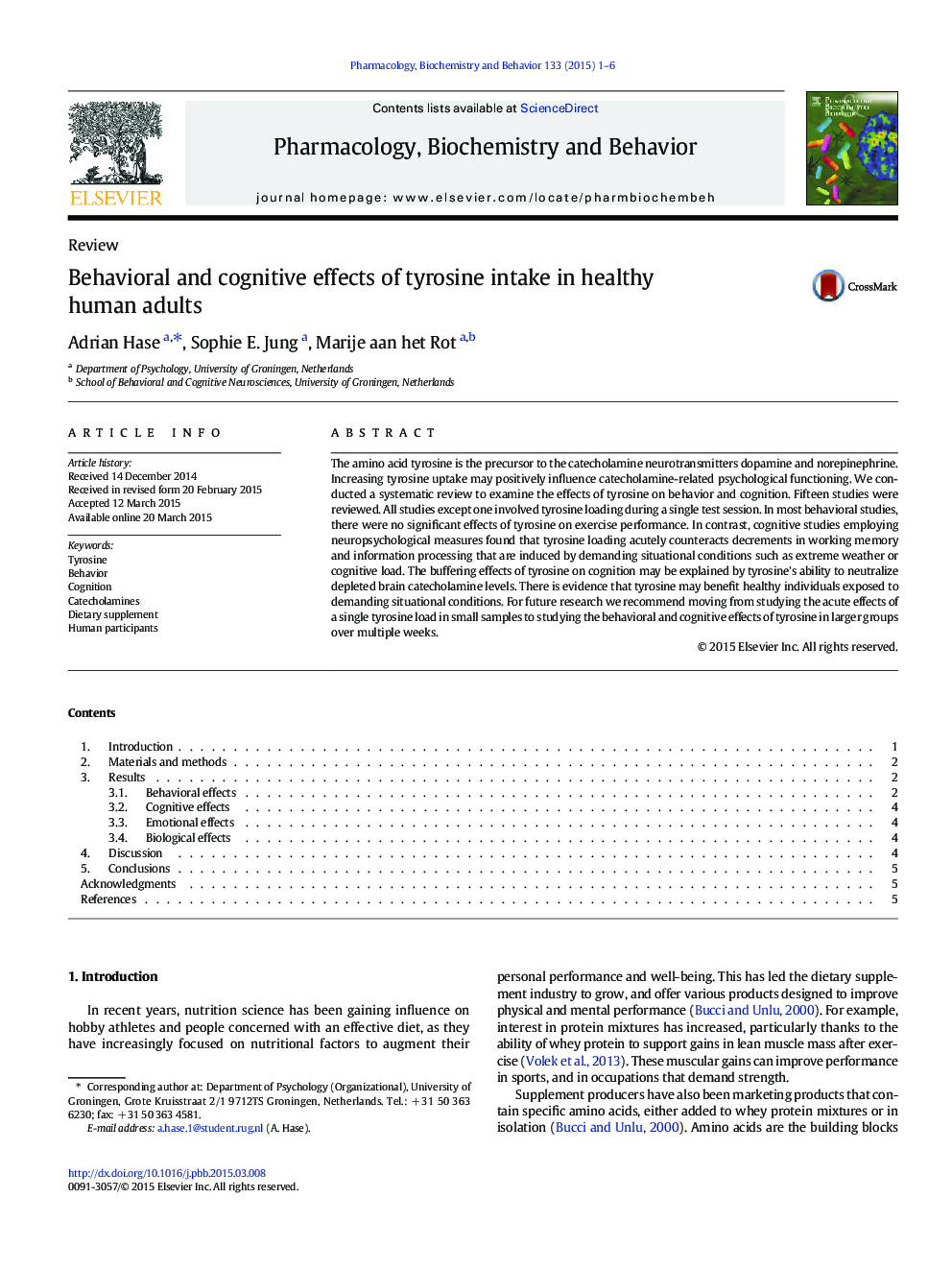| Article ID | Journal | Published Year | Pages | File Type |
|---|---|---|---|---|
| 2012772 | Pharmacology Biochemistry and Behavior | 2015 | 6 Pages |
•Tyrosine is the dietary precursor to dopamine and norepinephrine.•We reviewed 15 studies on the effects of tyrosine on human behavior or cognition.•Cognitive improvements can be observed after a single tyrosine load.•Behavioral changes may only appear after repeated tyrosine supplementation.•Future studies should focus on the longer-term effects of tyrosine intake.
The amino acid tyrosine is the precursor to the catecholamine neurotransmitters dopamine and norepinephrine. Increasing tyrosine uptake may positively influence catecholamine-related psychological functioning. We conducted a systematic review to examine the effects of tyrosine on behavior and cognition. Fifteen studies were reviewed. All studies except one involved tyrosine loading during a single test session. In most behavioral studies, there were no significant effects of tyrosine on exercise performance. In contrast, cognitive studies employing neuropsychological measures found that tyrosine loading acutely counteracts decrements in working memory and information processing that are induced by demanding situational conditions such as extreme weather or cognitive load. The buffering effects of tyrosine on cognition may be explained by tyrosine's ability to neutralize depleted brain catecholamine levels. There is evidence that tyrosine may benefit healthy individuals exposed to demanding situational conditions. For future research we recommend moving from studying the acute effects of a single tyrosine load in small samples to studying the behavioral and cognitive effects of tyrosine in larger groups over multiple weeks.
